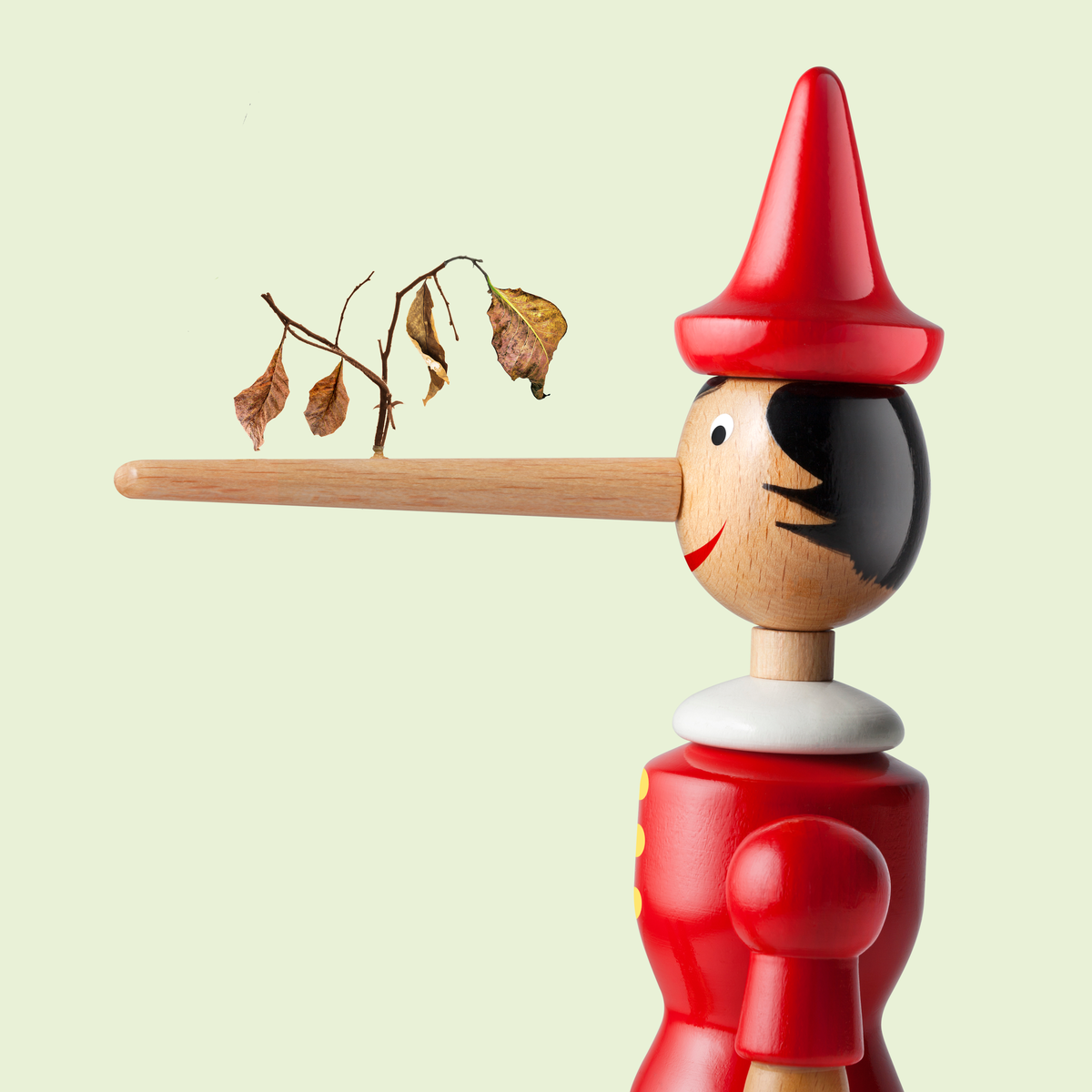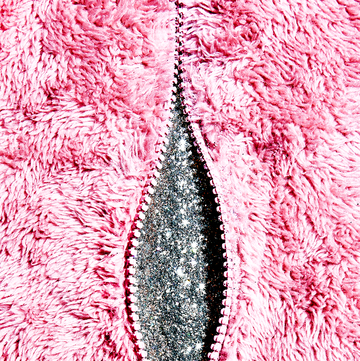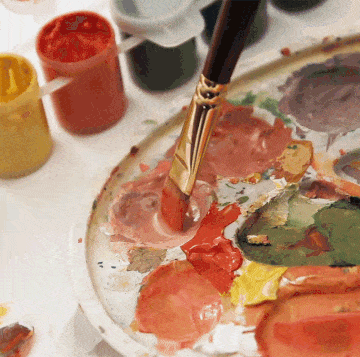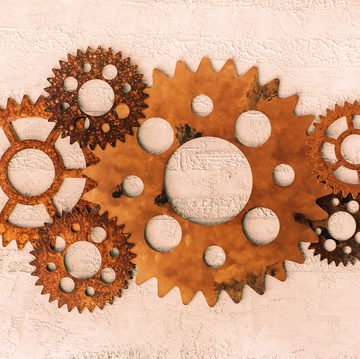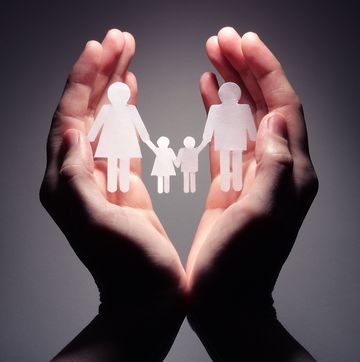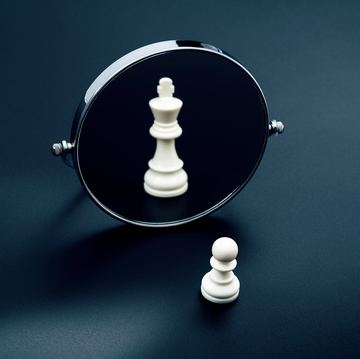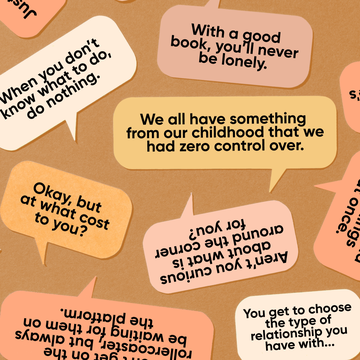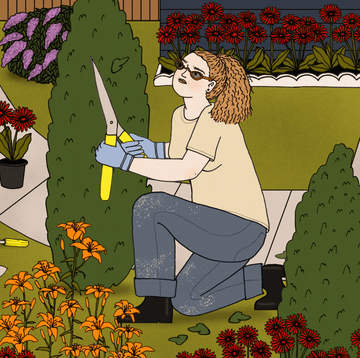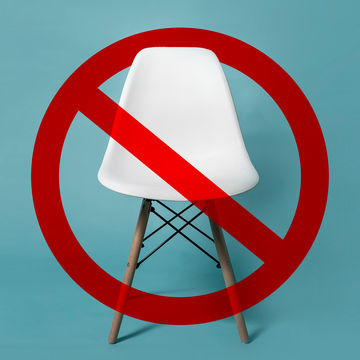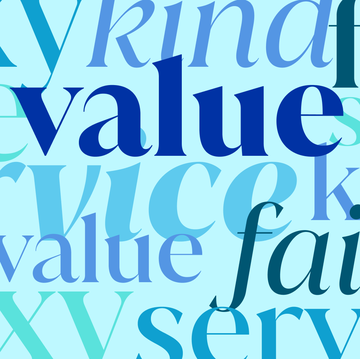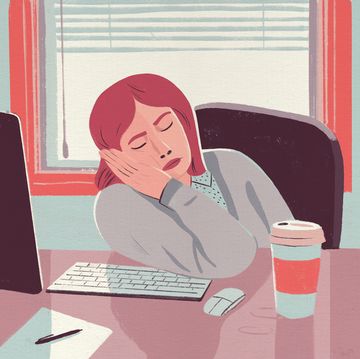Lying is a deceptively complex topic. We teach our kids that honesty is the best policy while crafting stratagems to keep them believing in the Tooth Fairy. We tell spouses we love the ill-fitting sweater they gifted us, fully resolved to banish it to deep storage. And that’s to say nothing of the Big Lies—the inarguably unethical ones that, even in this age of truthiness, serve as a wrecking ball to trust. Few of us reach George Santos levels of deception, but most of us frequently lie in ways large and small.
I consider myself a pretty honest person…and yet for a decade and a half during and after college, I lied to practically everyone but my closest friends and family. I’d been diagnosed as a teenager with an incurable retinal disease causing slow but inexorable vision loss, and I decided to dole out this information on a need-to-know basis. Reasonable. Except that as I lost more vision, I got into tricky situations for which an explanation was necessary. Walking by a friend without saying hi. Nearly falling into a swimming pool by accident. Because I hadn’t told people, I couldn’t offer the real explanation, so I improvised alternate ones. The falsehoods were so tiny, I reasoned, they were innocuous. Victimless crimes.
Eventually, I came to discover what everyone with a secret realizes: The victim was me. As it turns out, scientific research has proven this. To understand the complicated landscape of lying, I spoke to two honesty researchers to find out what, really, is so bad about lying. Are white lies okay? And if so, how can you tell when your lie has turned a little…beige? Will honesty really set you free? Here are five surprising truth bombs.
More From Oprah Daily

1. The hardest part of keeping a secret isn’t concealing it
Thirteen secrets. That’s how many the average person is keeping at any given time. That includes the person sitting across from you on the bus, standing ahead of you in line at the bank, or lying next to you in bed. That includes you.
This number comes to you courtesy of Michael Slepian, PhD, author of The Secret Life of Secrets and professor of behavioral science at Columbia Business School. Secrets and lies are often, though not always, linked, Slepian says; lies are generally kept secret, and secrets are often concealed with lies. (We’ll wait while you absorb that.) But a surprising discovery Slepian made in his research is that actively working to conceal a secret is the easiest part of secret-keeping. It’s the rumination and intrusive thoughts that come later that are most difficult.
“People are prepared for the moments of concealment,” he says. “What they aren’t ready for are all the times their mind will return to the secret, time and time again.”
2. Lying to someone to “spare” them can seriously backfire
I recently saw the Nicole Holofcener movie You Hurt My Feelings, about a couple whose marriage falls apart when the wife, an author, discovers that her husband has been lying to her for years about loving her book. She argues that her trust in him is irreversibly damaged. He argues that he was trying to spare her feelings.
It turns out there’s a name for a falsehood you tell to benefit someone else, often to protect them from harm: It’s called a “prosocial lie.” Prevailing wisdom deems these kinds of lies okay—but are they? Not necessarily, says Emma Levine, PhD, an honesty researcher and associate professor of behavioral science at the University of Chicago’s Booth School of Business. While these lies do shield people from hurt feelings, they can also rob them of the opportunity to learn and grow. And that’s something people value more highly than you might expect.
Levine’s research shows that, in situations where people can learn or improve based on honesty, they prefer the truth, even if it’s hurtful in the short term. So, in the case of the couple in the movie, Levine’s research would suggest that as long as the wife still had time to revise her book, the husband should have told her the truth.
“When there’s a situation in which someone can learn, if you don’t give them honest feedback, they will typically react negatively because they assume you are trying to control their experience in a way that deprives them of autonomy,” she says. “This can harm trust and cause them to see you as less ethical.”
3. Secrets and lies put terrible stress on your body
One of Slepian’s recent studies found that when people were instructed to think of a secret, they experienced increased heart rate, reduced cardiac output, and therefore increased peripheral resistance. Translation: Their heart didn’t work as efficiently as it should have. “We find that simply thinking about a secret elicits physiological responses that resemble a stress response,” says Slepian. “More so than thinking about something negative about yourself that people know about.”
We already know from Slepian’s research that, for most people, the mind constantly returns to a secret—and every time it does, the body experiences a mini stress response. A 2015 study conducted by researchers from Harvard and UC Berkeley found that telling lies had a similar effect on the body, and was associated with increased blood pressure, heart rate acceleration, respiration rate, and pupil dilation. Over time, says the American Psychological Association, this kind of chronic stress can put you at higher risk for hypertension, heart attack, or stroke, among other things you definitely want to avoid.
When it comes to the psychological harm of keeping secrets, Slepian’s research has revealed three distinct dimensions: People who believe their secret is immoral feel shame. People whose secret relates less to their goals and aspirations feel a sense of uncertainty. And people whose secret doesn’t involve other people feel isolated.
Shame. Uncertainty. Isolation. A nasty triumvirate.
4. Telling the truth isn’t as hard as it looks
We can thank Professor Levine for this insight. She designed a three-day field experiment in which she divided research subjects into three groups. One group was instructed to be completely honest to everyone, one group was told to be kind, and the last group was told to act as they normally would. The subjects predicted that practicing honesty would be meaningful but not enjoyable and thought it would decrease social connection and happiness. Which makes sense: Eating leafy green vegetables might be virtuous, but that doesn’t mean we have to like them.
Except that people did like being truthful, Levine discovered. “We found that honesty is more enjoyable and promotes social connection more than expected,” she says. It also brought an enhanced sense of meaning to the subjects.
A case study: My sister had a colleague who drove her nuts by constantly making condescending remarks. She was petrified he’d be insulted if she mentioned it but finally decided it was worth the risk. She spent a night rehearsing what she’d say and then, during a one-on-one meeting, she said her piece. He was surprised, apologetic, and thankful, and he immediately put her feedback into action. “It was scary,” my sister admitted. “But much better than I expected.”
Levine’s point exactly.
5. Being honest could be the cure for loneliness
The consensus seems to be that secrets and lies are as pernicious as advertised and, in general, honesty really is the best policy. Slepian suggests that you start small. His research found that confiding a secret to one other person—just one—appreciably improved people’s well-being.
Withholding a truth is “a form of self-imposed loneliness,” he says. “And when we choose to be alone with our secret, we often do not develop the healthiest ways of thinking about it. Confiding allows you to find a way forward. It reduces the mental load.”
I can attest to this. After many years of lugging around my secret, I decided to share it in 2014, by writing Now I See You, a memoir about my vision loss—one which, incidentally, received copious criticism from my husband. (My feelings were hurt, but my book was improved.) I experienced what Slepian’s research proved: Sharing the secret liberated me from my self-made isolation chamber. Suddenly, I was free to connect with other people going through similar challenges and benefit from advice, insights, and the transformative power of fellow-feeling. Preexisting relationships were deepened and enriched as friends offered reciprocal vulnerability and honesty to me. And when it came right down to it, once I’d ripped off the honesty Band-Aid, it wasn’t as hard as I feared it would be. My conclusion? The truth really does set you free.
